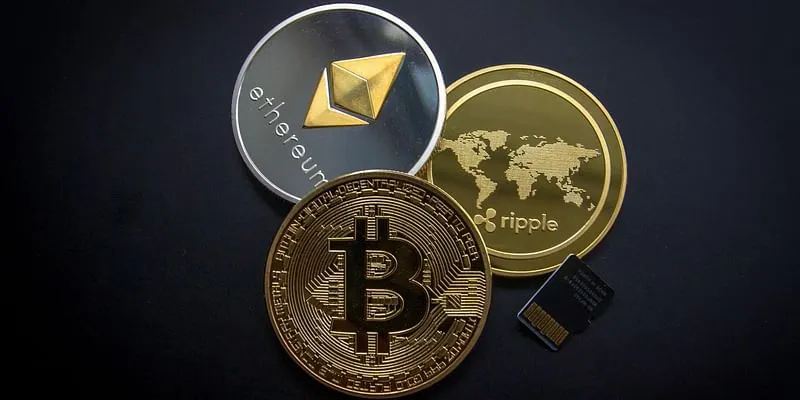[2022 Outlook] Top 5 expectations from the blockchain and Web 3.0 industry
Rapid innovation, development, and adoption in Web 3.0 in 2021 has provided an impetus for consumers, brands, institutions, and governments to invest heavily in the space in 2022. Here’s a look at some of the major expectations.
The year 2021 has been a landmark year for the global blockchain segment, right from cryptocurrency going mainstream to an influx of capital into Web 3.0, blockchain scaling efforts, and Metaverse becoming the latest buzzword.
2022 could capitalise on this current momentum and widespread interest in Web 3.0 technology and see rapid adoption across applications built on blockchain.
Here’s a look at some key expectations in the blockchain segment from 2022.
Crypto regulations to spur global adoption
In India, the local government has been looking to introduce a framework to define and regulate cryptocurrencies in India. There have been some reports that crypto could be regulated as an asset class, instead of being banned outright.
For India, which ranked second in terms of global crypto adoption in 2021, positive crypto regulations could lead to a surge in crypto investing and trading — not only from retail investors but also from institutional investors looking to add crypto assets to their portfolios.
In the global context, El Salvador accepting Bitcoin as legal tender in 2021 could also pave the way for more nations to experiment with adopting cryptocurrencies at scale.
Regulations across lending and staking against crypto assets, and other financial instruments tied to crypto, may also spur crypto adoption in countries with a positive framework around the same.

Ethereum scaling to onboard masses into Web 3.0
Ethereum is the most popular blockchain platform for Decentralised Apps (DApps), but it has been suffering from slow transaction speeds and high transaction fees (gas fees).
In 2022, Ethereum 2.0 — a collective term for a set of performance upgrades — is set to see its Beacon Chain (which introduces staking) merge with the Ethereum mainnet and introduce Proof of Stake (PoS) to its blockchain.
Further, Ethereum Layer 2 scaling solutions, such as Polygon, are investing heavily in Zero Knowledge (ZK) rollup technology. ZK rollups are a way to perform transactions off the main Ethereum network, bundled into a single transaction, computed and validated on a Layer 2 chain, and presented on the Layer 1.
Together, these Ethereum scaling efforts are poised to bring efficiency and scalability to its blockchain, thereby making DApps more easy and intuitive to use for the masses.

Polygon cofounders (L to R) Anurag Arjun, Sandeep Nailwal and Jaynti Kanani
Large VC investments to flow into Web 3.0 startups
Rapid innovations in Web 3.0 have piqued the interest of institutional VCs in 2021.
While some funds have already been deployed in Web 3.0 startups like Axie Infinity, The Sandbox, Alchemy, etc in 2021, the new year may see a significant rise in the number and ticket size of deals in the blockchain segment.
Leading the pack are US-based VC firms Paradigm and Andreesen Horowitz (a16z) with their $2.5 billion and $2.2 billion crypto war chests.
Coinbase Ventures, Pantera Capital, B Capital Group, Softbank, and several other funds are also actively monitoring the space and eyeing opportunities to inject capital into promising Web 3.0 startups.
India could witness a sizeable portion of this capital invested in its blockchain startups if the nation can soon come out with an industry-friendly framework around blockchain and cryptocurrency.

Institutions to ramp up investments in crypto
In 2022, regulatory clarity in crypto-friendly nations can drive confidence amongst large enterprise and financial institutions to invest in the strength and security of the crypto market and its tokens, exchange-traded funds (ETFs), NFTs, virtual land, and more.
In fact, a Fidelity survey found that more than half of institutional investors in Asia, Europe and the US currently invest in digital assets, and that a majority expect they will continue to do so.
With firms building integrated products for investing, trading and securing financial instruments and assets tied to crypto, the new year could see more milestones in this space, such as the first US Bitcoin futures-based ETF, which began trading in the second half of 2021.

Brands to make the most of the Metaverse
In 2021, Facebook CEO Mark Zuckerberg unveiled the company’s rebranding to Meta and revealed his ambitious plan to build an online, 3D universe that combines various virtual spaces.
In the new year, enterprises and brands across segments are likely to continue embracing the future of virtual worlds, and implementing their strategies to be part of these worlds.
Right from luxury brands like Dolce & Gabbana, sports brands like Adidas Originals to enterprise tech firms like Microsoft and gaming companies like Epic Games, prominent companies are set to not only participate in but also drive user experience across various iterations of the Metaverse.
Further, Meta’s own suite of products, which includes WhatsApp, Instagram, Facebook, Oculus VR, etc, are set to play a major role in introducing virtual spaces to its existing set of users, which number in the billions.
Edited by Saheli Sen Gupta


![[2022 Outlook] Top 5 expectations from the blockchain and Web 3.0 industry](https://images.yourstory.com/cs/121/98e25df018b511e988ceff9061f4e5e7/TDS-58-1641104670822.png?mode=crop&crop=faces&ar=16%3A9&format=auto&w=1920&q=75)


![[Funding alert] CoinSwitch Kuber turns unicorn; raises $260M from a16z, Coinbase Ventures, and existing investors](https://images.yourstory.com/cs/2/11718bd02d6d11e9aa979329348d4c3e/Kuber-1633505987743.png?fm=png&auto=format&h=100&w=100&crop=entropy&fit=crop)





